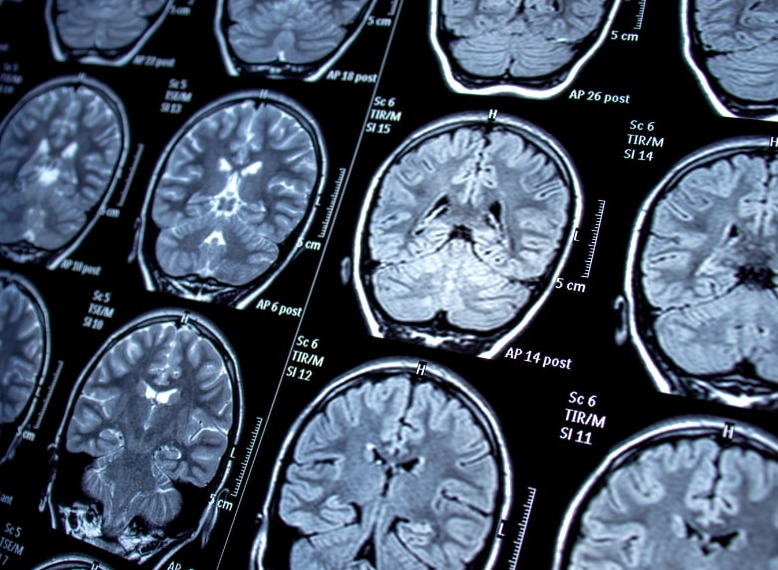- Home
- Forums
- Epilepsy Forum
- Research and useful tips - Epilepsy
- Life with epilepsy: seizures, driving and social anxiety
Patients Epilepsy
Life with epilepsy: seizures, driving and social anxiety
- 117 views
- 8 times supported
- 11 comments
All comments
Go to the last comment

hockeygoalie
Good advisor
![]()
hockeygoalie
Last activity on 20/07/2025 at 19:31
Joined in 2018
9 comments posted | 8 in the Epilepsy Forum
2 of their responses were helpful to members
Rewards
-
Good Advisor
-
Contributor
-
Committed
-
Explorer
I have not let my condition get in my way I drive and play golf an am a netminder in ice hockey I played rugby at high club level and other sports when younger

BAZWHEAT
Good advisor
![]()
BAZWHEAT
Last activity on 16/12/2025 at 17:26
Joined in 2015
129 comments posted | 13 in the Epilepsy Forum
26 of their responses were helpful to members
Rewards
-
Good Advisor
-
Contributor
-
Committed
-
Explorer
-
Evaluator
-
Friend
In 2016 it was found that for the past 45 years I had probably been suffering from Hydrocephalus, because I kept falling over backwards. Bit dodgy crossing roads, going up or down steps, etc.. However after op to put 'shunt' into my head and tube down to my belly to drain excess fluid, I was cured from falling, but doc decided to keep me on medication otherwise I would have to stop driving for a year.
See the signature
bazwheat

lesmal
AmbassadorGood advisor
![]()
lesmal
Ambassador
Last activity on 27/01/2026 at 17:35
Joined in 2018
1,535 comments posted | 79 in the Epilepsy Forum
82 of their responses were helpful to members
Rewards
-
Good Advisor
-
Contributor
-
Messenger
-
Committed
-
Explorer
-
Evaluator
Thank you for the results of the survey and a great article... My advice to others is to try and keep your head held high, even though its hard at times, stay positive and get to know others that also have epilepsy... Join social media, and find groups on Facebook and Twitter that deal with epilepsy. You'll be surprised how much information you can find from other people! Stay strong!
See the signature
Les
![]()
peteracre
![]()
peteracre
Last activity on 21/01/2018 at 22:16
Joined in 2018
I'm so glad that you've spoken about social awkwardness thought I was the only one. I'm petrified of having a fit around people and frightening them. They all say that it doesn't matter and they wouldn't be frightened, but still,
See the signature
P. Acreman

lesmal
AmbassadorGood advisor
![]()
lesmal
Ambassador
Last activity on 27/01/2026 at 17:35
Joined in 2018
1,535 comments posted | 79 in the Epilepsy Forum
82 of their responses were helpful to members
Rewards
-
Good Advisor
-
Contributor
-
Messenger
-
Committed
-
Explorer
-
Evaluator
Att. P. Acreman... Come and join our social circles on Facebook... If you wish to join any of our groups, send me a Friend Request with a personal message. It is great to extend your friendship with others with epilepsy! Keep positive!
See the signature
Les

BAZWHEAT
Good advisor
![]()
BAZWHEAT
Last activity on 16/12/2025 at 17:26
Joined in 2015
129 comments posted | 13 in the Epilepsy Forum
26 of their responses were helpful to members
Rewards
-
Good Advisor
-
Contributor
-
Committed
-
Explorer
-
Evaluator
-
Friend
@hockeygoalie Hi, if one drives there are laws which restrict who is able to drive taking into account their personal health. When I started with epilepsy when I was 25 the law prevented me from driving for 3 years, [the law is now only 1 year fit free [or only during sleep] so if you drive without adhering to these laws and have an accident you will not have insurance cover.
Even though I have been 'fit free' for many years I still have to take medication to satisfy the law. Recently it was fond that I have hydrocephalus which probably caused my fits all of those years ago. I now have a shunt in my head which drains fluid from my brain to my belly. My hospital doctor was going to take me off of my medication, but changed his mind as he said that if I did then I would have to stop driving for a period of time to prove that I would not have fits.
See the signature
bazwheat

hockeygoalie
Good advisor
![]()
hockeygoalie
Last activity on 20/07/2025 at 19:31
Joined in 2018
9 comments posted | 8 in the Epilepsy Forum
2 of their responses were helpful to members
Rewards
-
Good Advisor
-
Contributor
-
Committed
-
Explorer
that sucks mate I was same 3 years to start then free for a year if I did fit which happened 1time free buss and rail pass while I was off the road
![]()
Annalong
![]()
Annalong
Last activity on 03/04/2025 at 02:54
Joined in 2017
9 comments posted | 7 in the Epilepsy Forum
Rewards
-
Contributor
-
Explorer
I have found that people treat you differently once you say you're epileptic in a work situation and socially. As if it's not bad enough that you never know when a warning/fit will strike - in shops, on streets, on a train/bus, it is really embarrassing when people insist you're drunk when you've just had a fit and look at you like you're a freak.

Silvervixen
![]()
Silvervixen
Last activity on 08/02/2021 at 11:03
Joined in 2015
9 comments posted | 3 in the Epilepsy Forum
Rewards
-
Committed
-
Explorer
-
Friend
Thank you for the article, it made interesting reading. I am also very happy to hear that you are making more people aware of this awful condition, and how to deal with it.
Having been diagnosed at over 60 years old, it was very very difficult for me to come to terms with it. Like most people on here, one of the worst things was not being able to drive for three years. Also being so afraid of going out, either with or without someone in tow.
Luckily, I am driving again, I am on a three year licence, but that is good, I drive very rarely though, just when it is important that I do. I have lost a lot of confidence, and would often rather not if I can get away with it, but it is good to know I can if I have to.
As for going out, I have got a lot better with time, I still don't really go anywhere on my own, but I do love the theatre and eating out. My view is that we are entitled to some kind of life outside of our four walls at home, if I have a seizure when I am out, then I am sorry for the people who see me and may be afraid, but I know my husband or sisters will be with me and keep me safe, and that gives me the courage to keep on going out.
I think it is good for people to be educated about epilepsy, we are not full of demons, we will not hurt them, it is far worse for us than them, people need education and compassion.
Just stay positive guys, less stress is very good for us. I am finding tai chi is very beneficial, so can recommend perhaps giving it a try.
Good luck everyone, and thanks for the chats on here.
See the signature
Silver vixen

BAZWHEAT
Good advisor
![]()
BAZWHEAT
Last activity on 16/12/2025 at 17:26
Joined in 2015
129 comments posted | 13 in the Epilepsy Forum
26 of their responses were helpful to members
Rewards
-
Good Advisor
-
Contributor
-
Committed
-
Explorer
-
Evaluator
-
Friend
The main problem is ignorance. People just do not want to know, they are worried that they will be unable to cope with a person having a fit in their presence. Ignorance is bliss. Until one is faced with reality ! Everyone who is aware that someone that they know has epilepsy should talk to that person and ask what should be done if they see them fitting. Not only is this good for the 'patient', but will make their 'friend' confident that they will be able to cope in the circumstances.
See the signature
bazwheat
Give your opinion
Members are also commenting on...
Articles to discover...
Medication fact sheets - patient opinions...
Subscribe
You wish to be notified of new comments
Your subscription has been taken into account








Margarita_k
Good advisor
Margarita_k
Last activity on 07/10/2020 at 11:39
Joined in 2016
1,195 comments posted | 30 in the Epilepsy Forum
2 of their responses were helpful to members
Rewards
Good Advisor
Contributor
Messenger
Committed
Explorer
Evaluator
The word « epilepsy » is familiar to a lot of people. However, not many of them are aware of what it really means, thinking that epilepsy necessarily includes violent convulsive seizures, foam coming from the mouth, etc.
The fact that there are almost 40 different types of epileptic seizures is far from being a well-known circumstance. And yet, it is true. People suffering with epilepsy can experience loss of consciousness, temporary memory loss, uncontrolled movements (picking up and placing back objects, for example), confusion, etc. Contrary to a popular belief, flickering lights only trigger seizures in 3% of people suffering with epilepsy.
The survey conducted among Carenity members suffering with epilepsy, confirms this alarming lack of understanding: 53% of the respondents claim that people are insufficiently informed about the disease, which often causes curiosity (21%) and condescending attitude (14%). No wonder that 14% of our members do not wish to talk to others about their condition.
Yet, silence is not always the best option, and that’s what the aim of the World Epilepsy Day is: to raise people’s awareness of the disease, so as to avoid all discrimination towards patients, and to give them the opportunity to lead a normal life and get help when needed.
Where does help come from?
Luckily, Carenity members have their families and friends who can take care of them and know what to do in case of emergency. Thus, for 64% of the respondents, this role is wonderfully performed by their spouses/partners; parents also know what to do (for 46% of the respondents), as well as siblings (35%) and children for older patients (39%). For half of our members who have completed the survey, friends are of great help as well, which is excellent news. Last but not least, 7% of the respondents mentioned their work colleagues and bosses as the ones that are ready to help if needed.
Accurate diagnosis
Epilepsy is usually diagnosed in childhood, or early adulthood, but the condition can also be detected in people 65 years of age and older. Among Carenity members who have completed the survey, 35% were diagnosed as children before the age of 11, and 25% - between the age of 11 and 20. Only 7% of the respondents received their diagnosis at the age of 40 and older.
Epilepsy can sometimes be mistaken for another condition, but all of our members were diagnosed accurately and no error was made regarding their condition.
Seizures
Only 14% of our respondents are seizure-free, and all of our respondents have experienced difficult seizure-related moments throughout their life with epilepsy, which they remember quite well, as they have caused injuries (“I had a seizure whilst making a hot drink. Instead of the boiling water going into the cup, I poured it down my stomach, leaving a scar”; “multiple fractures in my shoulder following a seizure!”) or long periods of unconsciousness (“I had a seizure which left me unconscious for 3 days”), but also loss of employment (“At an interview being told I was a liability to be in the shop, after they assured us at a meeting they were not prejudice”), and fear (“Feeling like I’m reliving a bad dream”).
How does epilepsy impact everyday life of patients?
Driving is the biggest concern for people suffering with epilepsy. Thus, only 25% of the members who have participated in the survey, confirmed that they have a driving licence. Other 75% have never driven in their life (mostly those who were diagnosed at an early age), or have been struggling to get a licence, as they are not seizure-free: “Could not get a licence due to never been free from seizures..” According to the British law, the drivers licence can be attributed to a person suffering with epilepsy, if they can prove that they represent no danger for other people on the road. This means that a special commission, DVLA, must look into the patient’s medical history and decide whether they are able to drive or not. Usually, one should be seizure and medication free for 12 months, in order to get a licence. However, this period can vary, depending on the type, the frequency of the seizures, and the type of vehicle the person wants to drive: bus drivers, for example, have to be seizure-free for 10 years in order to get permission to drive.
A lot of the members are well aware of the danger they may represent on the road and do not wish to drive: “My licence wasn't taken away, but I agreed with my GP not to drive. I would rather not drive than risk the lives of others!”; “I've never had a licence as I don't have warning before seizures and the thought of having a seizure and putting others at risk scares me”.
Apart from driving, there are many activities that epileptic patients have had to give up (in 75% of cases), such as swimming alone, taking a shower/bath with no one in the house, going to discos, concerts, theatres, drinking alcohol, cooking, working full-time, riding a bike, etc. Some cannot even go out alone, as they are “scared of what would happen to me if I had a seizure and nobody knew what it was”: “I don't really like going place on my own cuz I don't know when I going to have a seizure. I get scared some time special when places are packed like shop”.
71% of the members don’t do any sport due to their epilepsy. Those who do (28%), enjoy mostly yoga, swimming, going to the gym, walking, but also “less common” activities, like bowling, curling, table tennis, golf, ice hockey, etc. Patients who maintain physical activities, notice that they have a positive effect on their health: “Going to the gym and going out for walks improves my wellbeing.” “Since doing more physical exercise, my seizures have lessened”.
In regards to their private life, the respondents estimate the impact of epilepsy to be non-existent (21%), low (50%) and from moderate to considerable (17%), with only 10% estimating the impact to be strong. But as far as professional life is concerned, patients feel the impact to be of a greater significance: 42% think that their disease has influenced their life considerably (42%), and 14% claim that the impact has been huge. Still, 42% of the respondents have mentioned they felt no impact at all or only a minor one.
Socialising is something that makes everyday life of people with epilepsy difficult, as they can be scared of having a seizure in a public place (like a restaurant), which provokes stress and anxiety and does not facilitate daily interactions with people. For example: “I cannot drive, I am restricted socially as many activities are inaccessible using public transport. I feel socially isolated.”, or “I (try to) avoid stress. I don't 'put myself out there because of the stress. And I worry about getting tired. I worry about socialising i.e. drinking and big social events.”, or “I don't like been in my own due to been scared. I don't walk many places alone I only ever go on bus if my mum's ill”.
All in all, Carenity members feel that epilepsy has influenced their social and professional life considerably, limiting their freedom and making it difficult to stay active. Nevertheless, most of them accept the illness and get a lot of help from their families and friends, and some enjoy physical activities which make them feel healthier. Carenity can be of use for those who find it hard to socialise outside their homes, as it gives them the opportunity to feel less alone and better understood while interacting with people who are in the same situation.
So don’t hesitate to continue the wonderful job of supporting each other and sharing advice, and also spreading the word about epilepsy, so that fewer people will be "unaware what to do".